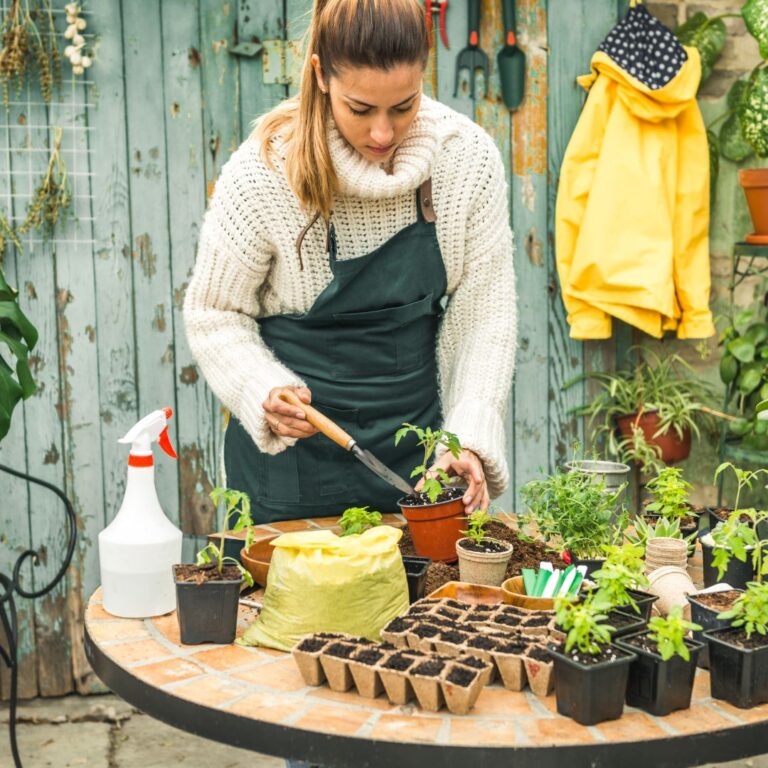Home gardening has experienced a remarkable resurgence in recent years, emerging as a popular lifestyle trend that combines wellness, sustainability, and self-sufficiency. This trend, fueled by a growing desire for fresh, organic produce and a closer connection to nature, has seen people of all ages and backgrounds turning their balconies, backyards, and even indoor spaces into flourishing green sanctuaries. The rise of home gardening reflects broader shifts towards mindful living and environmental consciousness, offering numerous benefits for physical health, mental well-being, and the planet.
1. Health Benefits of Home Gardening
Engaging in home gardening provides a range of health benefits, both physical and mental. Gardening is a moderate-intensity exercise that helps improve cardiovascular health, strength, and flexibility. Activities such as digging, planting, weeding, and watering offer a full-body workout, promoting physical fitness and helping to reduce the risk of chronic diseases.
Beyond physical health, gardening has significant mental health advantages. Studies have shown that spending time in nature and engaging in outdoor activities can reduce stress, anxiety, and depression. The act of nurturing plants and watching them grow fosters a sense of accomplishment and purpose, which can boost overall mood and mental well-being.
2. Sustainability and Environmental Impact
Home gardening supports sustainability by reducing the environmental footprint associated with food production and consumption. Growing your own fruits, vegetables, and herbs minimizes the need for transportation, packaging, and pesticides, which are common in industrial agriculture. This leads to a reduction in greenhouse gas emissions and resource use, making home gardening an eco-friendly choice.
Moreover, home gardens contribute to biodiversity by providing habitats for pollinators such as bees, butterflies, and birds. Planting a variety of native species supports local ecosystems and helps maintain a healthy environment.
3. Self-Sufficiency and Food Security
The COVID-19 pandemic highlighted vulnerabilities in global food supply chains, prompting many people to seek greater self-sufficiency. Home gardening offers a practical solution by enabling individuals to grow their own food and reduce dependence on commercial sources. This not only ensures access to fresh, nutritious produce but also enhances food security.
Additionally, home gardeners can control the quality of their produce, avoiding harmful chemicals and ensuring that their food is organic and safe to consume. This aspect of home gardening aligns with the growing trend towards organic and health-conscious eating.
4. Urban Gardening Innovations
Urban areas, often limited in space, have seen innovative approaches to home gardening. Vertical gardens, container gardening, and rooftop gardens maximize limited space, allowing urban dwellers to grow plants in apartments and small outdoor areas. These creative solutions make gardening accessible to those living in densely populated cities.
Indoor gardening has also gained popularity, with advancements in hydroponics and aeroponics enabling people to grow plants without soil. These systems are ideal for growing herbs, leafy greens, and even small fruits indoors, providing fresh produce year-round regardless of climate or space constraints.
5. Community Building and Social Connections
Home gardening fosters a sense of community and social connection. Neighborhood gardening clubs, community gardens, and online gardening forums bring together individuals who share a passion for gardening. These platforms allow for the exchange of knowledge, seeds, and produce, strengthening community bonds and promoting collaborative efforts.
Community gardens, in particular, offer shared spaces where residents can garden together, fostering a sense of collective ownership and pride. These gardens often become community hubs, hosting events, workshops, and educational programs that benefit all ages.
6. Educational Opportunities and Skill Development
Gardening provides valuable educational opportunities for people of all ages. Children, in particular, can benefit from hands-on learning experiences that teach them about biology, ecology, and nutrition. Schools and educational programs are increasingly incorporating gardening into their curricula to promote environmental stewardship and healthy eating habits.
For adults, gardening can be a lifelong learning journey, offering continuous opportunities to acquire new skills and knowledge. From understanding soil health and pest management to mastering the art of composting, gardening encompasses a wide range of disciplines that contribute to personal growth and expertise.
7. Economic Benefits
Home gardening can also yield economic benefits. By growing their own produce, individuals can save money on groceries, particularly when it comes to high-cost organic fruits and vegetables. Over time, even a small garden can lead to significant savings.
Additionally, surplus produce can be preserved through canning, drying, or freezing, extending its availability and reducing food waste. Some home gardeners even turn their hobby into a side business, selling excess produce, seeds, or homemade products at local markets.
8. The Therapeutic Value of Gardening
Gardening is increasingly recognized for its therapeutic value, often referred to as horticultural therapy. This practice involves using gardening activities to improve physical and mental health, particularly for individuals with disabilities, chronic illnesses, or mental health conditions. Horticultural therapy programs are found in hospitals, rehabilitation centers, and senior living facilities, providing patients with a calming and restorative activity that aids in their recovery and well-being.
In conclusion, the rise of home gardening is a multifaceted trend that touches on health, sustainability, self-sufficiency, and community building. As people seek ways to enhance their lives and contribute positively to the environment, gardening offers a fulfilling and impactful solution. By cultivating their own green spaces, individuals can enjoy the myriad benefits of home gardening, fostering a healthier, more sustainable, and connected world.

